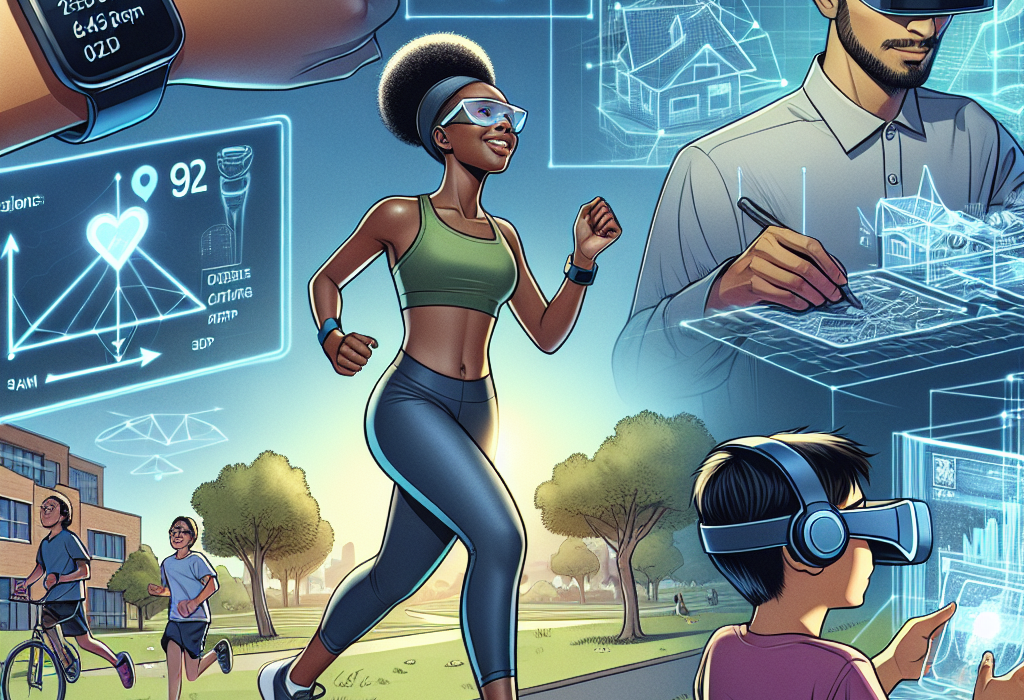Wearable Tech: How Smart Devices are Changing Daily Life
In the rapidly evolving world of technology, one of the most transformative innovations is the advent of wearable tech. From the once mocked sci-fi trope to an omnipresent reality, smart devices worn on the body have integrated seamlessly into our daily lives, revolutionizing how we interact with the world.
The Rise of Wearable Tech
Wearable technology is not a novel concept. The earliest forms can be traced back to the 1960s with the emergence of the Metcalfe’s radio hat and the calculator watch in the 1970s. However, it wasn’t until recent advances in miniaturization, wireless connectivity, and battery life that wearables began to gain mainstream traction.
The surge of fitness trackers like Fitbit in the early 2010s marked a pivotal moment. These devices equipped with accelerometers, altimeters, and heart rate sensors, provided users with unprecedented insights into their daily activities and health metrics. This burgeoning niche soon expanded, giving birth to a plethora of smartwatches, smart glasses, and smart clothing, equipped with an array of sensors and capabilities like GPS, gyroscopes, and even electrocardiograms.
Transforming Healthcare and Fitness
One of the most significant impacts of wearable tech is in the realm of healthcare and fitness. Devices like the Apple Watch and Garmin’s fitness trackers have evolved beyond mere step counters. They now include features like heart rate monitoring, sleep tracking, and even the ability to take electrocardiograms (ECGs). These capabilities empower individuals to take a more proactive approach to their health, allowing for early detection of potential health issues such as atrial fibrillation or sleep apnea.
Moreover, healthcare providers are increasingly harnessing data from these devices to monitor patients remotely. This can dramatically improve the management of chronic illnesses by providing clinicians with real-time data, reducing the need for frequent office visits and enabling timely interventions.
Enhancing Communication and Connectivity
Wearable tech extends far beyond the purview of health. Devices like smartwatches have transformed communication, allowing users to receive notifications, send messages, and even make calls without reaching for their smartphones. This integration boosts efficiency and ensures that crucial information is always at one’s fingertips, quite literally.
The advent of augmented reality (AR) glasses like Microsoft’s HoloLens and Google Glass showcases the potential for wearables to redefine how we interact with digital content and the physical environment. These devices overlay digital information onto the real world, providing immersive experiences for education, training, navigation, and entertainment.
Revolutionizing Work and Productivity
In professional settings, wearables are proving to be invaluable tools. Enterprise adoption of smartwatches enables seamless communication for deskless workers, such as those in retail or logistics, improving response times and streamlining operations. Wearable displays and smart glasses can provide hands-free access to information and instructions, enhancing productivity for roles that require multitasking or access to complex data on the go.
Lifestyle and Fashion Integration
Wearable tech has also made significant strides in the fashion industry. Brands are blending style with functionality to create smart clothing and accessories. Examples include Ralph Lauren’s PoloTech Shirt that monitors biometric data during exercise, and Levi’s Jacquard jacket, which allows wearers to control their smartphones through gestures.
Privacy and Ethical Considerations
Despite the numerous benefits, wearable technology raises important privacy and ethical concerns. The constant collection of personal data necessitates stringent measures to protect users’ information. Companies must ensure transparent data policies and robust security protocols to gain and maintain consumer trust.
The Future of Wearable Tech
The horizon of wearable technology is boundless. The confluence of artificial intelligence, machine learning, and wearable tech promises even more advanced and personalized experiences. From smart contact lenses that monitor glucose levels for diabetics to biosensors that detect stress, the potential applications are as vast as they are exciting.
In conclusion, wearable technology is undeniably reshaping daily life. By seamlessly integrating technology into our everyday routines, these devices offer unprecedented convenience, health benefits, and connectivity. As innovation continues, wearable tech will likely become even more sophisticated, forging new paths in healthcare, communication, productivity, and beyond. Embracing this evolution, while remaining mindful of privacy and ethical implications, will be key to harnessing the full potential of wearable technology.
















Leave feedback about this
You must be logged in to post a comment.